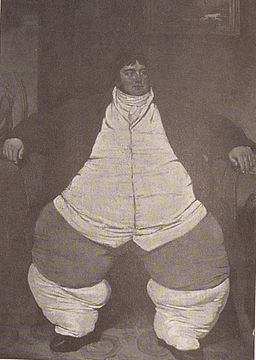
Below is a list of various nutrients that affect a person's ability to gain or lose weight.
- Zinc - reduces leptin, a beneficial hormone that regulates appetite, which is reversed by zinc repletion.
- Asparagine - this amino acid increases insulin sensitivity which helps the body store energy in muscle instead of storing it as body fat.
- Biotin - boosts metabolism by improving glycemic control (stabilizes blood sugar) and lowering insulin, a hormone that promotes fat formation.
- Carnitine - carries fatty acids into cell so they can be burned for fuel; Helps reduce visceral adiposity (belly fat).
- Calcium - inhibits the formation of fat cells; Also helps oxidize (burn) fat cells.
- Lipoic Acid - improves glucose uptake into cells, which helps a person burn carbohydrates more efficiently.
- Chromium - makes the body more sensitive to insulin, helping to reduce body fat and increase lean muscle.
- Vitamin B5 - taking B5 lowers body weight by activating lipoprotein lipase, an enzyme that burns fat cells. One study linked B5 supplementation to less hunger when dieting.
- Magnesium - low magnesium in cells impairs a person’s ability to use glucose for fuel, instead storing it as fat; Correcting a magnesium deficiency stimulates metabolism by increasing insulin sensitivity. Magnesium may also inhibit fat absorption.
- Glutamine - reduces fat mass by improving glucose uptake into muscle.
- Cysteine - supplementation with this antioxidant reduced body fat in obese patients.
- Inositol - supplementation may increase adiponectin levels.
- Vitamin B3 (niacin) - treatment with B3 increases adiponectin, a weight-loss hormone secreted by fat cells; Niacin-bound chromium supplements helped reduced body weight in clinical trials.
- Vitamin A - enhances expression of genes that reduce a person’s tendency to store food as fat; Reduces the size of fat cells.
- Vitamin E - inhibits pre-fat cells from changing into mature fat cells, thus reducing body fat.
- Vitamin D - deficiency strongly linked to poor metabolism of carbohydrates; Genes that are regulated by vitamin D may alter the way fat cells form in some people.
- Vitamin K - poor vitamin K status linked to excess fat tissue; Vitamin K helps metabolize sugars.
Read More
Topics:
zinc,
Carnitine,
Magnesium,
Weight Loss,
Hypothyroidism,
biotin,
Vitamin D,
B Vitamins,
Calcium,
Vitamin E,
Chromium,
Glutamine,
Asparagine,
Vitamin A,
Vitamin K,
Cysteine,
Weight Gain,
Lipoic Acid,
Inositol




